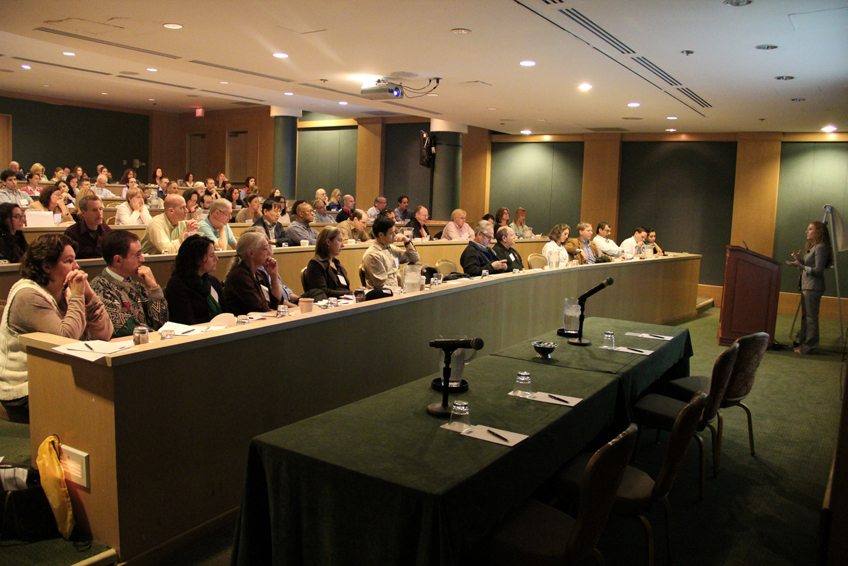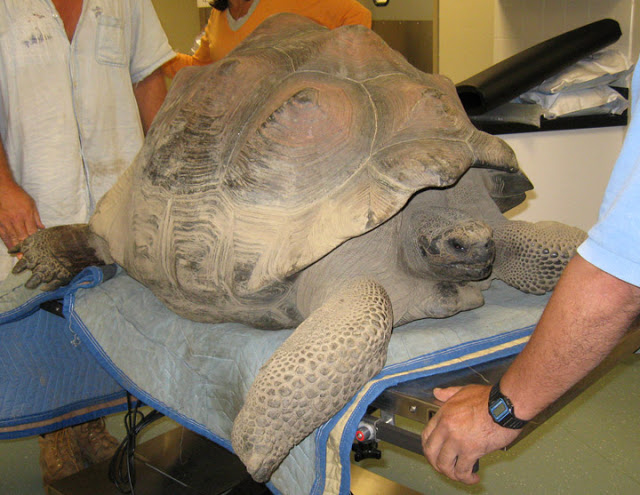Blog
May is National Pet Cancer Awareness Month!
May is National Pet Cancer Awareness Month!
*The cause of cancer in pets, just as with people, is largely unknown, although animals get cancer at about the same rate as humans! In fact, The American Kennel Club Canine Health Foundation has noted that 50% of dogs aged 10 or older will be affected by cancer.
Thus, in a continued effort to battle and treat pet cancer, Cornell University Veterinary Specialists is proud to welcome Dr. John Farrelly, a long-standing leader in the field of oncology, to our team!
CUVS's New Presence!
CUVS's New Presence!
CUVS has a new social media look and presence! Visit and like our Facebook page and follow us on twitter @CUVS_Stamford. We will be providing you and all our followers with pictures, articles, helpful information and updates on what's going on here at CUVS!
Name This Stray!
Today we're giving all our followers the opportunity to get involved in the life of one of our very special residents here at CUVS:
This pretty girl came to CUVS when she was rescued from an accident by the Stamford Police. While we’re unsure of her age and her exact breed, we do know that she’s incredibly loving and a world class snuggler. While we would love for her to be adopted into a nice, quiet home with low key adults who want a lap dog to cuddle with/keep them company, she is currently residing in her own plush little palace here at CUVS.
Pet Dangers During the Holidays!
All of us at CUVS wish you and your family a wonderful holiday season! Because we’re always looking out for your four-legged family members, we’d like to share some common dangers to avoid during this joyful, and sometimes chaotic, time.
Happy Thanksgiving from Cornell University Veterinary Specialists
Cornell University Veterinary Specialists wishes you and your family a happy and healthy Thanksgiving... and that goes for your pets as well!
This holiday season, please be aware of food-related illnesses:
• Do not give in to begging pets: too many table scraps of fatty food can lead to pancreatitis. Symptoms can include vomiting, abdominal pain, diarrhea, weakness and shock- definitely not a fun way to spend Black Friday.
• The turkey carcass is a delicious treasure trove of foreign bodies. The bones can become lodged in the throat or airway, or become obstructed in the intestines. Do not give the dog a bone. Close up any garbage bags and move them away from your home's living area so the animals can't get into them.
Wrap up: "The First 24 Hours" Continuing Education Lectures & Labs

Continuing Education: The First 24 Hours: A Multifaceted Approach to the Emergency Patient

REGISTER BY OCTOBER 13TH
A Day of Practice Relevant Continuing Education
THE FIRST 24 HOURS: A MULTIFACETED APPROACH TO THE EMERGENCY PATIENT
8 Hours Continuing Education for Veterinarians and Technicians*
SUNDAY, OCTOBER 23, 2011 9AM-6PM
Greenwich Hyatt, Greenwich, CT
CUVS Performs a CT Scan on Arizona, a Galapagos Tortoise

A Study of the 9/11 Search & Rescue Dogs
In the spirit of the 9-11 commemoration, we recognize the efforts of the almost 300 search-and-rescue dogs called into service following the attacks. A recently published study, funded by the AKC, evaluated 95 search and rescue canines for health issues post 9-11. Results showed these magnificent animals did NOT develop the common respiratory issues seen in many of the human responders and workers. Several of these brave dogs are still alive 10 years after the attacks on the World Trade Center:
CUVS will be open and fully staffed during the storm
Cornell University Veterinary Specialists will have doctors, technicians and staff staying at the hospital for the duration of Hurricane Irene. Care will continue around the clock for all current patients, and we have generators in place in case of a power outage. If you have an animal emergency during the worst of the storm, our Emergency Department will be open. Please call us at (203) 595-2777 to give us a heads-up as you leave for the hospital. If anything changes with the status of the hospital, we will put up another post.
Keep a close eye on your pets during the storm; this type of weather is very dangerous for dogs and cats.

Latest Comments
Laura
I am honored to know Laura for many years and so proud of who she is and what she has become!!
Lex❤
So glad you found the best home! Love you Lex❤
Awesome
I never knew the whole story of Mica! When her stomach twisted right before Christmas, I am so glad that we all were able to help her and get her well again to continue your adventures together, with your CUVS family by your side now of course!
Dr Hackner's cat
What a wonderful story and exactly what I would expect Dr Hackner to do. I will never forget the care Dr Hackner's gave to my beloved Turpsy over a very long, awful weekend.